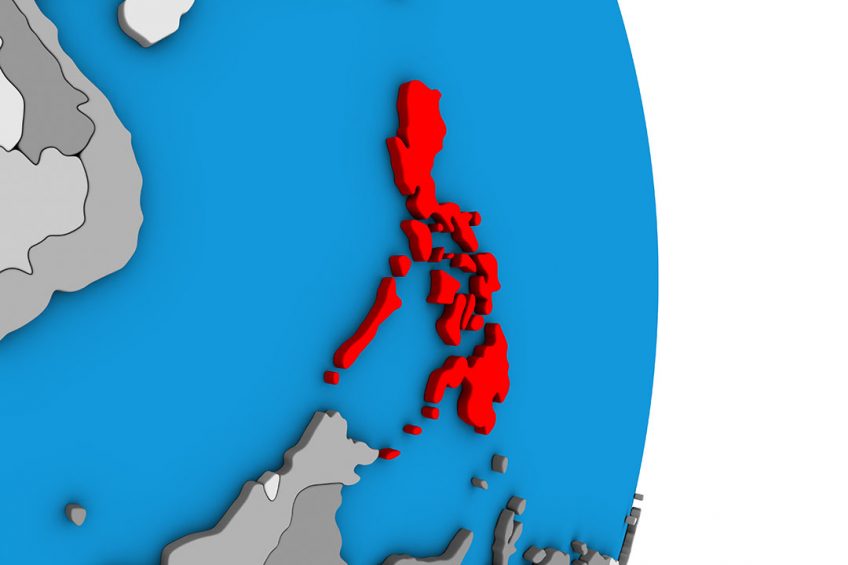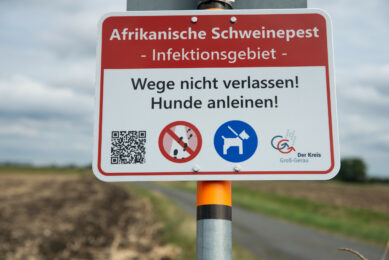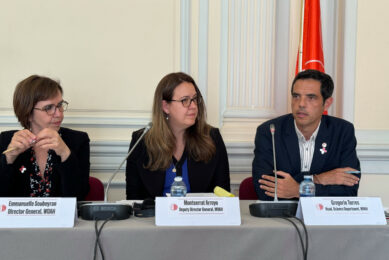Philippines tightens biosecurity awaiting lab results

The Philippines is stepping up its biosecurity while waiting for a confirmation as to what caused the recent spike in mortality in pigs on Luzon island.
Earlier this week, the Philippine Department of Agriculture (DA) confirmed that cullings were going on in the Philippines as the agency had reported ‘increased mortality of pigs raised in backyards’. There were reports of 20% mortality, where 3-5% mortality would be common.
The cullings had to be performed at Luzon island in areas around the capital Manila. It is hoped that it is not African Swine Fever (ASF). That virus has been affecting the pig herds in other countries in South East Asia in recent months, affecting Vietnam, Cambodia, Laos and Myanmar.
Biosecurity measures announced in the Philippines
In a response to the findings, the Philippines has declared a temporary ban on the importation and distribution of pork meat products from countries suspected to be affected by the deadly virus.
According to news agency Reuters, the Philippines’ Department of Agriculture (DA) also banned the transport of live animals, meat products and by-products without a Veterinary Health Certificate from a licensed veterinarian and a relevant shipping permit from the Bureau of Animal Industry (BAI).
Read more about pig health in the Pig Progress Health Tool
In addition, the DA also ordered checkpoints set up at the entry and exit points of all provinces to closely monitor the transport of live animals, especially pigs, and meat products. Animals brought to slaughterhouses will be checked by BAI personnel for fever and other signs of any disease.
Uncertainty about the causative agent
In the meantime, all pigs in a radius of 1km around the virus’ ground zero at Luzon island have been culled. The exact location of the cullings have not been made public, but according to Taiwanese intelligence these happened in Rizal and Bulacan provinces, immediately west and north of Manila. Blood samples of affected animals have been sent to Europe for laboratory checking.
As it could last up to 2-3 weeks before the results are available, contradicting explanations have reached the Philippine media. Noel Reyes, a spokesman of the Philippine Department of Agriculture (DA) confirmed according to the local newspaper Phil Star that ASF had not caused the outbreaks. In a press briefing on Wednesday, Mr Reyes mentioned that the private sector had assured the DA that no pork meat from ‘infected areas’ had slipped past authorities. He added, “So the current supply of meat is from other hygienic areas. That’s why we are limiting the movements. There will be an outbreak if we fail to contain it.”
That message was repeated by agriculture secretary Dr William Dar. He denied it being ASF, said the deaths were caused by a virus, but he declined to give a name to the causative agent.
Following the protocol for virus checks
A different article in the same media outlet, however, seems to contradict that denial, stating that ASF was the initial diagnosis of the Bureau of Animal Industry (BAI), but that announcements could not be made yet because the authorities would have to follow the protocol.
It is not unthinkable, however, that indeed a different virus that ASFv is responsible for the deaths. In this context, Classical Swine Fever (CSF) is worth mentioning, also known as hog cholera. The Philippines is familiar with the virus causing CSF. For instance, a relatively recent outbreak of CSF in Luzon affected 4,000 pigs in 2007.
Read more about African Swine Fever in the ASF minipage at Pig Progress











